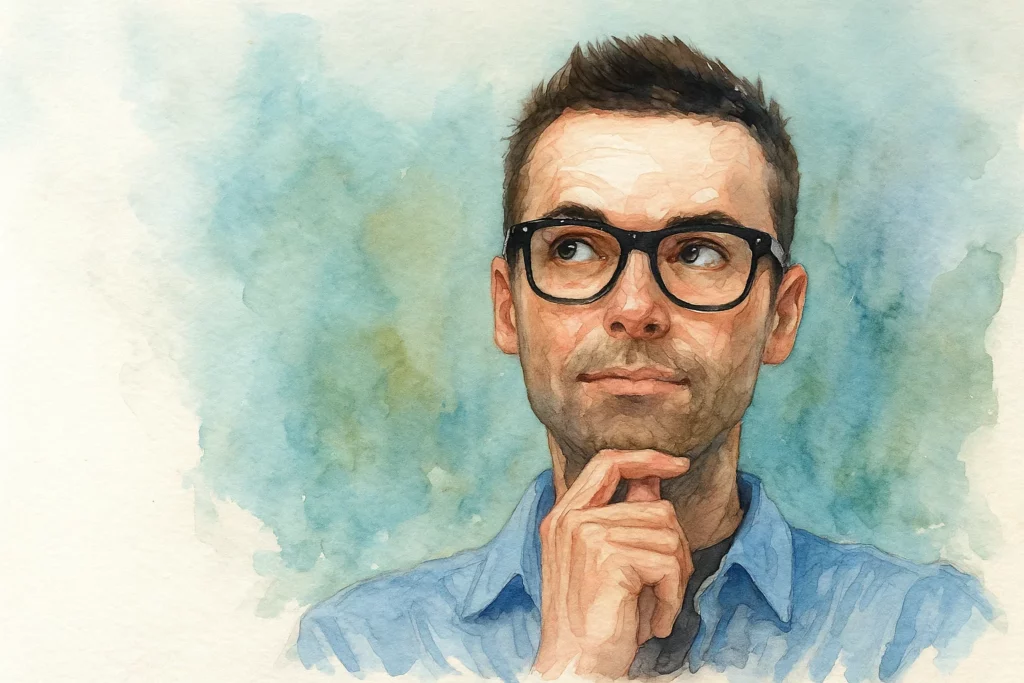Олег Торсунов: «Правда, которая говорится с целью доказать свое, не является проявлением правдивости. Это скрытая ложь. Истинная правда заключается в том, чтобы сделать всех счастливыми».
Часто во время лекций Олег Геннадьевич ссылается на Тирукурал, Священное Писание тамилов, которое датируется приблизительно вторым веком до нашей эры. В Тирукурале очень подробно описываются законы нравственности, поэтому этот древнейший трактат весьма полезен для изучения. Так, в Тирукурале содержится целая глава о таком качестве, как правдивость, которое также является одним из 26 качеств святой личности.
В Тирукурале приводятся разные высказывания о правдивости, наиболее популярным и известным из которых является следующее:«Только ту правдивость можно назвать истиной, которая никому не приносит вреда». Совпадает ли это определение правдивости с нашим? Ведь в большинстве случаев мы понимаем под правдивостью ту правду, которая, как говорится в известной поговорке, колет глаза.
— Как правило, мы говорим правду с одной целью, чтобы ее кому-то доказать, вдавить. Не то, чтобы мы это сильно хотели сделать, просто хочется, чтобы люди наслаждали наши чувства, делали нас счастливым. И самый лучший способ для этого — это правда. Потому что правда — это самая большая сила и самое страшное оружие, — утверждает Олег Геннадьевич.
Если ребенок получил двойку, в чем тут заключается правда? В том, что он не прав. И под эту правду попадает наше настроение, эмоции, желание что-то сделать или сказать. Другими словами, мы используем правду в своих интересах и думаем, что нам это поможет стать счастливее. Но проблема заключается в том, что именно правда ранит сердца наших близких больше всего.
Если говорить правду, можно сделать человеку еще хуже, чем говорить неправду. Если муж скажет жене правду о том, что она его не уважает, лучше не станет. Более того она и так это знает, ей не нужно об этом докладывать, просто у нее есть свои причины, почему она так к нему относится. Если в отношениях один из супругов видит правду только в своих действиях, а в действиях мужа / жены не видит ее, то это разрушает семью.
Почему возникают все ссоры и конфликты? Потому что мы упорно стоим на стороне своей правды. Каждый из нас отстаивает свое понимание правды. При этом мы не замечаем, когда говорим правду с целью навредить. Нам кажется, что мы просто озвучиваем всё, как есть. Но говоря такую правду, мы не знаем, что в этот самый момент мы бьем своего близкого человека прямо в сердце.
— Правда, которая говорится с целью доказать свое, не является проявлением правдивости. Это скрытая ложь. Истинная правда заключается в том, чтобы сделать всех счастливыми. В этом заключается правда, а не в том, чтобы доказать им, что я прав. В этом нет правды, потому что такая правда ранит сердце сильнее любой лжи и лицемерия, — подчеркивает Олег Геннадьевич.
Часто, когда люди слушают лекции по семейным отношениям, они разрушают свою семью быстрее, чем если бы они не слушали лекции вообще. Почему так происходит? Причина заключается в том, что мы слушаем лекции не с целью поменять себя, а с целью поменять близкого человека. Однако главная цель лекций Олега Геннадьевича и других ведических лекторов заключается в том, чтобы перестать мучить других. Если мы слушаем лекции, то мы в первую очередь должны научиться принимать близких людей в своем сердце, любить их такими, какие они есть, и культивировать в себе внутреннюю жизнь. В этом заключается правда.
Однако большинство приходят на лекцию, чтобы разобраться, в чем же мой близкий человек не прав. У всех нас в глубине души есть ощущение, что мой муж или жена в чем-то не правы, но в чем точно мы не можем понять. Услышав на лекции то, как должны вести себя близкие люди, мы приходим домой и говорим близкому человеку правду, а против нее ничего не сделаешь. При этом как мы это делаем? С чувством превосходства, обиды, злобы, негодования, неуважения или каких-то других негативных чувств. Редко кто, узнав правду о семейных отношениях, применяет ее к себе, а не примеряет на своего супруга / супругу. Если человек склонен в первую очередь думать об ошибках в своем поведении, в этом прослеживается сильный разум.
— Если мы считаем, что мы обладаем истиной, то мы должны вести себя так, чтобы не принести никому вреда, чтобы сердце близкого человека не было израненным этой правдой. Часто бывает так, что кто-то из супругов не может открыть свое сердце, потому что его близкий человек воспринимает все его слова с позиции своей правды. А это очень сильно портит отношения. Но почему так происходит? Потому что правда часто смешивается с эгоизмом человека, — подчеркивает Олег Геннадьевич.
However, you should know that the feeling of truth is not yet a sign of true truth. If a person in life is guided by a sense of truth and thinks that he is doing the right thing, this is a big mistake. The Vedas explain that there are four types of sensation of truth: in ignorance, in passion, in goodness and spiritual truth. We wrote about this in the article “4 types of truthfulness”.
Если мы не можем понять, что, помимо нашей правды, может быть еще какая-то правда, то чем мы отличаемся от животного? Примечательно, что у животных тоже есть ощущение правды. Например, кошка фыркает, потому что она уверена, что она права в какой-то конкретной ситуации. Собака гавкает на другую собаку, потому что тоже чувствует правду в своих действиях.
— Ощущение правды — это серьезная тема, которую надо изучать. Люди часто попадают в капкан с этим ощущением правды. Согласно Ведам, правда, разрушающая жизнь других людей и оправдывающая нежелание служить и заботиться об окружающих, является правдой в невежестве. При этом она тоже чувствуется, как правда. Она не выглядит, как ложь, потому что в ней есть скрытый глубокий смысл. Но когда человек ее говорит, он опирается не на него, а на свой эгоизм, — отмечает Олег Геннадьевич.
Например, есть поговорка «Пускай работает железная пила, не для того меня мама родила». Возникает вопрос: для чего тогда мы родились? Веды говорят, что человеческая жизнь предназначена для того, чтобы мы осознали высший смысл, смогли постичь свою духовную природу и свои вечные отношения с Богом. Поэтому, когда мы говорим, что человек родился не для работы, это справедливо, и это ощущение истины передается в эту поговорку. Однако люди говорят ее не для этой цели, а для того, чтобы можно было бездельничать и расслабленно жить. Так как в этой фразе есть нечто, похожее на истину, то все чувствуют, что в ней есть правда.
То же самое касается поговорки «Не в деньгах счастье, а в их количестве». Количество денег важно, поэтому сразу возникает ощущение правды. Но есть также и благостная правда: «Счастье не в деньгах». Однако она не всем понятна, как и невежественная правда. Также есть правда в страсти. Например, когда вам говорят: «Я хочу с вами дружить / сотрудничать». То есть вам предлагают дружбу, но это не бескорыстная дружба. Так как очевидно, что такой человек чего-то от вас хочет. Говорит он при этом правду? Да, но у нее есть свой тайный смысл.
Приведем другой пример правдивости в страсти. Когда девушка говорит парню: «Да, ты мне нравишься». Что это значит? Это значит, что этот парень ей действительно нравится, но ей также нравится и то, что у него есть машина, хорошая работа, достаток, соответствующее окружение. Не то, что бы она сильно его любила, просто ей нравится такая жизнь, и, так как этот парень может ей всё это дать, он ее тоже устраивает.
Так, ощущение правды не всегда говорит о том, что это правда, или, как еще любят говорить, истина в последней инстанции. Правда может быть относительной, а может быть абсолютной. Последняя, как правило, касается истины в ее духовном понимании. Там нет неправды или обмана. А относительная правда есть у всех. У каждого из нас в сердце есть своя правда, и она нам гораздо ближе и понятнее, чем чья-либо еще.
Однако наша задача заключается в том, чтобы не давить на окружающих людей своей правдой, не пытаться что-то доказать, а наоборот, принять близкого человека с его правдой. В этом и есть правдивость, но это очень большая аскеза для нас, и многие люди этого вообще не понимают, поэтому рушатся семьи. В этом заключается проблема. Поэтому надо знать, как правдивость проявляется в семейной жизни, в чем ее опасность и как этого можно избежать. Об этом мы поговорим в следующей статье.





